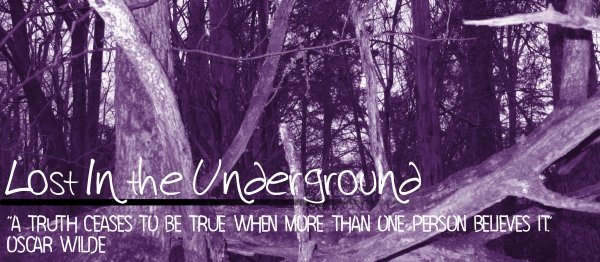Time for some more thinking out loud.
So, I'm cool with evolution. I'm even down with the theory that humans and apes evolved from common ancestor. It doesn't bother me in the least little bit. And I don't consider evolution to be all at incompatible with a belief in a Divine Being. Frankly, I think it's better theology to posit that the world and everything in it is in a state of change as a part of a process toward some end goal than the most popular formulations of intelligent design. And, it's a greater wonder that a process could lead to the creation of something as intricate as a human brain, or a sense of taste than it is for some being to have simply said be.
And no, I'm really not bothered by the fact that there are holes and unexplained or imperfectly explained phenomenon. Science is a progress too. Scientists will continue to come into a more perfect understanding of the laws of the universe just as theologians (and, here I speak of theology in the grass-roots sense) will continue to come into a more perfect understanding the Divine and what the Divine calls on us to become. Revelation is constant and continuing and present in everything. That's my worldview, duckies. Love it or hate it, it's mine.
So, obviously, theories of the evolution -- much like anything else in human experience -- have something to add to theology. So then, what are some of the principle occurences described by the theory of evolution? Mind you, science isn't really my area, but then, for my purposes, I'm not interested in the intricate details just the general theory. So we have a principle of change. A principle that values adaptation. And it values variety and innovation.
The first two of these principles reveals that the Divine didn't set up a conservative world. The world is not intended to remain in stasis -- if that were the case, genes would not mutate. And genes do mutate. So, it seems quite clear, that the Divine likes change. Second, the ability to adapt is valued. Change in the environment, then adapt or be naturally deselected.
The third principle is the most interesting to me. The Divine isn't content with a single comforming cosmic muck. Or even some finite number of created critters. The Divine wants some bleeding variety and new inovations on a frequent basis. I see this being extended into a command for critters of the human variety. We're all different from one another for a reason. The imperative is not to conform to one single ideal of human behavior (or to one category in a gender binary). The imperative is to fully realize each individual, unique human self, thus acheiving the greatest possible variety. This means both realizing one's own potential and allowing others to recognize their selves. In other words, love thy neighbor as thyself. So, it's okay that other people don't express themselves in a way that is similar to one's or ultimately even in a way that is intelligible to one.
Further, I think that all the variety expresses something about the nature of the Divine. Namely, the impossibility of a single expression as sufficient to communicate the full nature of the Divine.
StrawPerson: But, wait, doesn't that rule out the possibility of the incarnation?
Well, no, not really. I don't think that it is at all impossible or even unlikely that the Divine was fully incarnated in the person of Jesus of Nazareth. I'm going to fess up that I'm a bit more skeptical that J.C. is the only incarnation of the Divine as a human person. The thing is, it's notoriously difficult to know another person completely. It's notoriously difficult to know oneself completely. (i.e., it's not impossible that J.C. didn't fully understand his own divine nature.) And when you're two thousand years removed from an individual and relying on texts written at least one generation after the individual in question, there is no way.
This isn't to say that Jesus isn't a model for humans. It's just that the meaning of modeling one's life on J.C. needs some rethinking. Instead of suppressing the individual self to conform to what one's told Jesus lived like, look out how Jesus is portrayed as responding to human categorizations and commands to confrom to a code of expectations. Hmm, categories couldn't have meant too much to a dude who went around breaking social taboos and mores by eating with people considered unclean. In fact, Jesus appears to have had very little interest in folks who were conforming to social norms. He was more interested in embraced those who didn't fit. The one's who added to human variety. And, if a social code got in the way of what he needed to do, he outright ignored it.
Hmm, this is getting long. I'll stop here for now.
Friday, June 29, 2007
Subscribe to:
Post Comments (Atom)


No comments:
Post a Comment